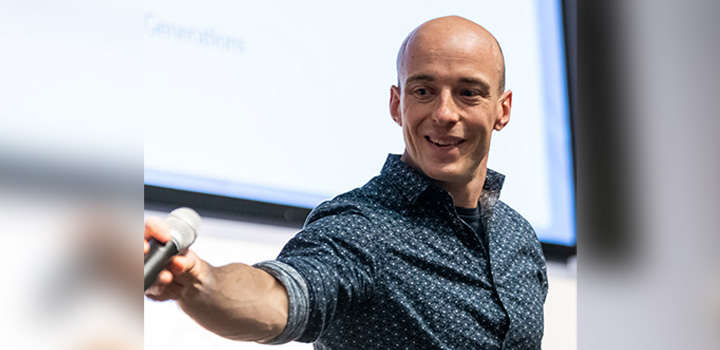New £1.1 million grant to improve well-being of teens in care
By: Communications

Researchers at the University of East Anglia are launching "LIMITLESS II", a £1.1 million project aiming to improve the well-being support available to teens living in care funded by the National Institute for Health and Care Research (NIHR).
Lead research Dr Simon P Hammond, from UEA's School of Education and Lifelong Learning, said: "Teens are the fastest growing age group entering care, and the group most at risk of poor mental health. Better evidence on the ways carers can support teen's mental health is urgently needed."
Life story work is a way of promoting mental health for those living in care by helping them to understand who they are and how their experiences might have shaped them; this builds a sense of identity and belonging. It is usually delivered in a high-intensity way, meaning it relies on specialist input over many months, and is therefore too expensive to provide to everyone.
It also tends to be delivered solely to younger looked-after children (0-11 years old), and there is limited evidence and guidance available for its use with teenagers (12-18 years old). Ultimately, the most in need often miss out. Understanding if life story work could be delivered in a lower-intensity way (such as by foster carers or kinship carers) to teenagers, how this could be done, and if this helps, is vital.
Dr Hammond continues: "Our recent project, the National Institute for Health and Care Research (NIHR) Research for Patient Benefit (RfPB) funded LIMITLESS 1 project, reviewed international literature to understand when and how low-intensity life story work could work for teens. From this work we produced initial guidance published in BMJ Open. We also co-produced an animation with care leavers to explain this work to teens currently living in care.
"However, LIMITLESS 1 did not tell us enough about how different external and/or internal factors may change how adolescent-focused low-intensity life story work should be delivered in different settings or if it makes a difference. In order to develop detailed and usable advice that takes these factors into account and can improve mental health, we must now hear from those living and working in care. We will then need to test out if this advice is liked by teens, carers and social care professionals; if it is practical; and learn how we could test if it helps. This is precisely what LIMITLESS 2 will enable our team to do.”
LIMITLESS 2 is a 42 month-long NIHR Health and Social Care Delivery Research (HSDR) funded project. Consisting of five ‘work packages’, Dr Hammond and his team - including people with care experience, clinicians, carers and academics from across and beyond UEA - will refine their initial practice guidance, and use this to develop, co-produce and feasibility test a new suite of resources that aim to improve the quality, accessibility and consistency of adolescent-focused low-intensity life story work.
"I hope that this work and the entire LIMITLESS programme helps young people with care experience to recognise they are not limited by their reasons for entering care, or by their experiences in care, but that they are limitless," says Dr Hammond. "I want all young people with care experience to be able to flourish. They deserve to thrive, not just survive."
LIMITLESS 2 will start in May 2024 and finish October 2027. For more information, email: s.hammond@uea.ac.uk.
Related Articles

Spotlight on Dr Simon P Hammond
For the start of Foster Care Fortnight this week, we are raising awareness for Dr Simon P Hammonds innovative research within UEA Health and Social Care Partners to support children and young people with care experience.
Read more
A UK social media ban “the wrong tool for the job” say experts
Academics from the University of East Anglia (UEA) have warned of the risks of a ban on under 16s using social media, following the announcement today of a government consultation on introducing one in the UK.
Read more
2025 – a year in research
The past twelve months have seen UEA researchers break new ground on everything from Magna Carta to the mating habits of jaguars in the Amazon. Join us as we take a look back at just some of 2025’s incredible stories, discoveries and expert insights.
Read more